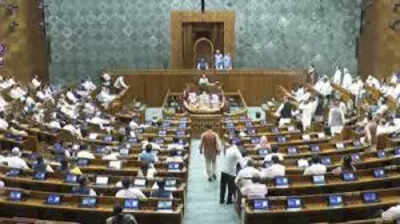NEW DELHI: Tribal councils and community leaders from across the Northeast on Thursday mounted a coordinated push for long-pending Sixth Schedule reforms and full implementation of the 2020 Bodo Accord, using an ABSU-led national seminar in Delhi to urge the union government to table the constitutional amendment in the upcoming winter session of Parliament.The deliberation brought together autonomous district councils, legal experts and legislators which opened with tributes to Bodofa Upendranath Brahma and remarks by chairperson Prof Ramesh Bhardwaj.
ABSU president Dipen Boro said reforms linked to Article 280 and the Sixth Schedule would determine “how councils receive funds, exercise powers and function at the village and municipal levels.” While some Bodo Accord commitments have progressed, he said key areas – restructuring of the Bodoland Territorial Council, land rights, village bodies and utilisation of the Special Development Package – remain pending. “The next step must now come through Parliament,” he said, appealing for the amendment to be introduced this session.Recalling decades of conflict and negotiation, former BTR chief executive member Pramod Boro urged Parliament to take up the 125th Amendment Bill in the winter session, saying an accord must be honoured “as a commitment made to citizens.”Tripura minister Sukla Charan Noatia said the issues raised apply to all ten autonomous councils in the region, adding that Tripura’s 2019 proposal for an upgraded Sixth Schedule arrangement “remains pending despite carrying the expectations of our people.” With tribal communities forming roughly one-third of the state’s population, he said stronger constitutional backing is essential for long-term stability and development.Former Khasi Hills Autonomous District Council leader Titosstarwell Chyne said assurances from the centre have not translated into visible progress, leaving councils “concerned and disappointed.” A collective Northeast platform, he said, was necessary to ensure tribal regions are not sidelined in national decision-making.Senior advocate Vijay Hansaria stressed that the Bodo Accord “cannot remain a document for display,” calling for clear action on administrative powers, financial autonomy and village-level governance. He said many councils still struggle due to unstable funding and delayed policy decisions.



